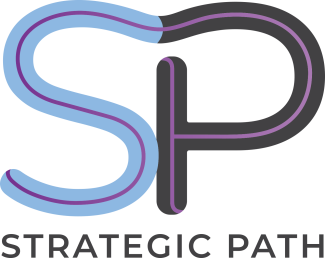Individual Retirement FAQs
How much money should I have saved for emergencies?
If you do a Google search for this question, you will get around 472,000,000 results. Many of the results have calculators or talk about keeping 3-6 months as a good rule of thumb. I think the amount depends on a couple of factors. If your pay varies due to bonuses, commissions, or other circumstances, you will probably want to keep a higher amount for emergencies. If you are a teacher with tenure, you may be able to keep less available for emergencies. Personal circumstances should also be factored in such as health issues, kids, or upcoming expenses. Working with us will help you to find the right amount to keep available for your situation.
Do I need a financial plan?
Finances are more complicated than ever. Navigating them requires work. If you are comfortable doing your own research that’s fine, but there are a lot of bad answers on the internet. A plan is about more than how to allocate your investments. A good financial plan will help you to better understand your cash flow. It will help you to better manage your investments. It will help you decide which of your investment and savings accounts are best to use in which situation. One of the great things about having a plan is you get to make informed decisions instead of just winging it.
Should I work after I apply for social security?
The answer depends on how much you make and how old you are. If you are not at full retirement age (FRA) then there is a limit on how much you can make before there is a reduction in your Social Security. If you are full retirement age or older, you can make as much as you want without a negative impact on your benefit. Depending on your income, you might pay taxes on part of your Social Security or it may be entirely tax-free. Sometimes working a couple of years after FRA and collecting Social Security can help to catch up for a lack of savings earlier in life.
Should I pay off my home?
If you have the money in a savings account or just received a cash inheritance and want to free up your monthly cash flow it might make sense. If you are pulling the money from an IRA the tax consequences might make it the wrong choice. Like many financial decisions, an understanding of your specific circumstances is necessary to properly answer this question. This is a question we get all the time and are very familiar with helping our clients answer. For more information read our blog.
Can I retire before 65?
One of the reasons people wait to retire until 65 is because that is when you can file for Medicare. Love it or hate it, the Affordable Care Act (ACA) made an impact on the healthcare options available to people retiring before 65. When you apply for health insurance through the ACA or Pennie in Pennsylvania, the exchange asks for your income. They do this to calculate if you are eligible for subsidies to help decrease the cost of your payments. If you structure your retirement income properly, you may be eligible for a decreased cost of your healthcare. For more info on how that works, check out our blog.
How can I eliminate taxes for my beneficiaries?
While it may be possible to eliminate many of the taxes your beneficiaries will pay, it may not be practical to eliminate them all. Sometimes the consequences of avoiding taxes may outweigh the benefits. Putting assets in a trust may avoid Pennsylvania inheritance taxes, but may have restrictions that make it difficult to access. There are also circumstances where it makes more sense for your beneficiaries to pay the taxes. If you have beneficiaries that are in a lower income tax bracket, it may make more sense for them to pay tax on retirement distributions than it would for you to convert it all to Roth to avoid tax.
Does everyone need a will?
While it is possible for an estate to go where you want it without a will, I wouldn’t chance it. In Pennsylvania, if you die without a will and don’t have descendants your spouse gets the first $30,000 and splits the remaining money with your parents. If you have descendants, your spouse splits the first $30,000 and then splits the remaining assets with them. The bottom line is that what you think happens if you die without a will may not be what happens. Here is a link to more details.
Do you work with business owners on their personal finances?
We look at both your personal and business financial situations. As a business owner, it may become difficult to unravel where the business ends and your personal finances begin. We review the business cash flow and your personal cash flow needs and goals and integrate them into one overarching plan that takes both into consideration. We create an order of operations for your excess cash flow that takes your unique goals and aspirations under consideration.
How can I separate my business income/debt from my personal assets/debt?
Very carefully. Separating your personal financial needs from that of the business can help us to understand how much cash flow you will need in retirement. Once we have that figured out, we can work towards a savings goal that will create the necessary income in retirement. We often find that once business and personal cash flows are separated, our clients realize that retirement is a more realistic goal than originally thought.
Corporate Retirement FAQs
Are there fees in my retirement plan?
All retirement plans have fees. They have fees for the provider, the advisor, and the fund companies. The employees pay the fund company fees, but the employees or the employer can pay the other fees.
How do I get money out of my plan?
Every plan is allowed to make its own decisions on when employees can get money out. Almost all plans allow it at retirement, death, and disability. Sometimes through loans, financial hardship, and 59 ½ years old. Remember, you just cannot take money out because you want it.
How much should I put away per year?
The answer to this is very individualized but usually as much as possible. The maximum amount is a dollar amount. For 2022, you can put in $20,500 if under age 50, and another $6,500 if over age 50 (“catch-up”).
This amount usually changes annually, so we need to check with the IRS:
What is my company match?
Not all plans have a match. If your company gives a match, then it can be any percentage they want. All deferrals (pre-tax and Roth) get matched.
Can I change the amount I am putting into the plan?
You have the right to stop your contributions at any time. The document rules dictate how often you can make other deferral changes.
Can I change my investments?
The answer is yes, assuming it is a plan where you pick your own funds. There may be some trading restrictions by the fund families, but you are allowed to change funds regularly. Although, that is often not recommended.
Can I do a Roth in my retirement plan?
Plans do not have to allow Roth contributions, but most plans do have this as an option for participants.
Is Roth 401(k) the same as Roth IRA?
Both mean after-tax money is invested, but there are differences. The Roth 401(k) does not have an income limit, and it does not start the 5-year clock needed to take the interest earned out of the account without taxes. Age 59 ½ is still something you need to be aware of. The Roth IRA does have income limits to invest, and it does start the 5-year clock as soon as a contribution is made.
What is an SPD (Summary Plan Description)?
It is a document that participants are supposed to get that explains all the main rules of the retirement plan.
Who are all the people involved in a retirement plan?
Many of these same people are referenced in the fee question above. There is a provider that runs the plan for the company. They are who will send you the statements and give you a website. There is often an advisor that is the face of the retirement plan. This is the person that meets with the participants and often does the committee meetings for the company decision-makers. Then, you have the fund companies who supply the investments that the money goes into from the payroll deductions.
A TPA (third party administrator) is often used to do the document, testing, and 5500 work.

